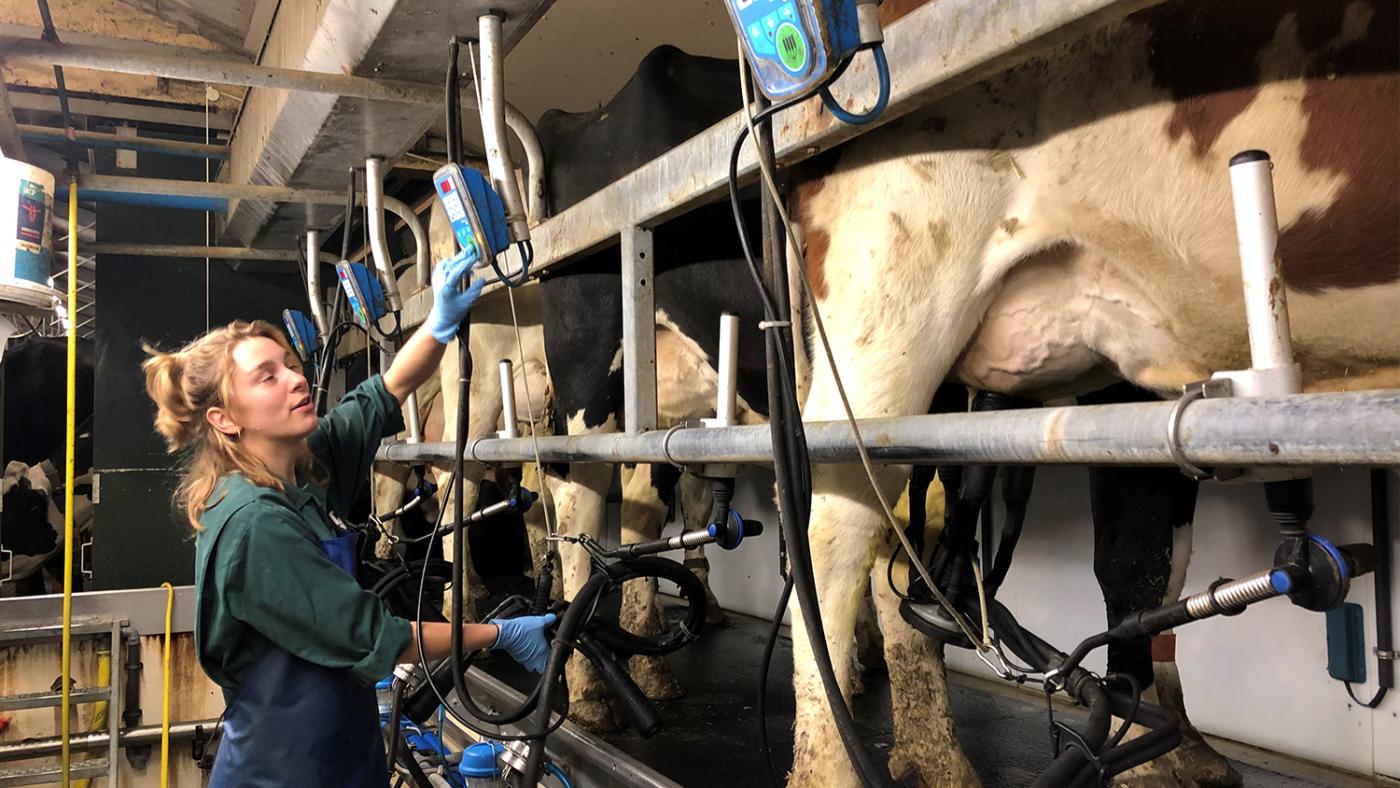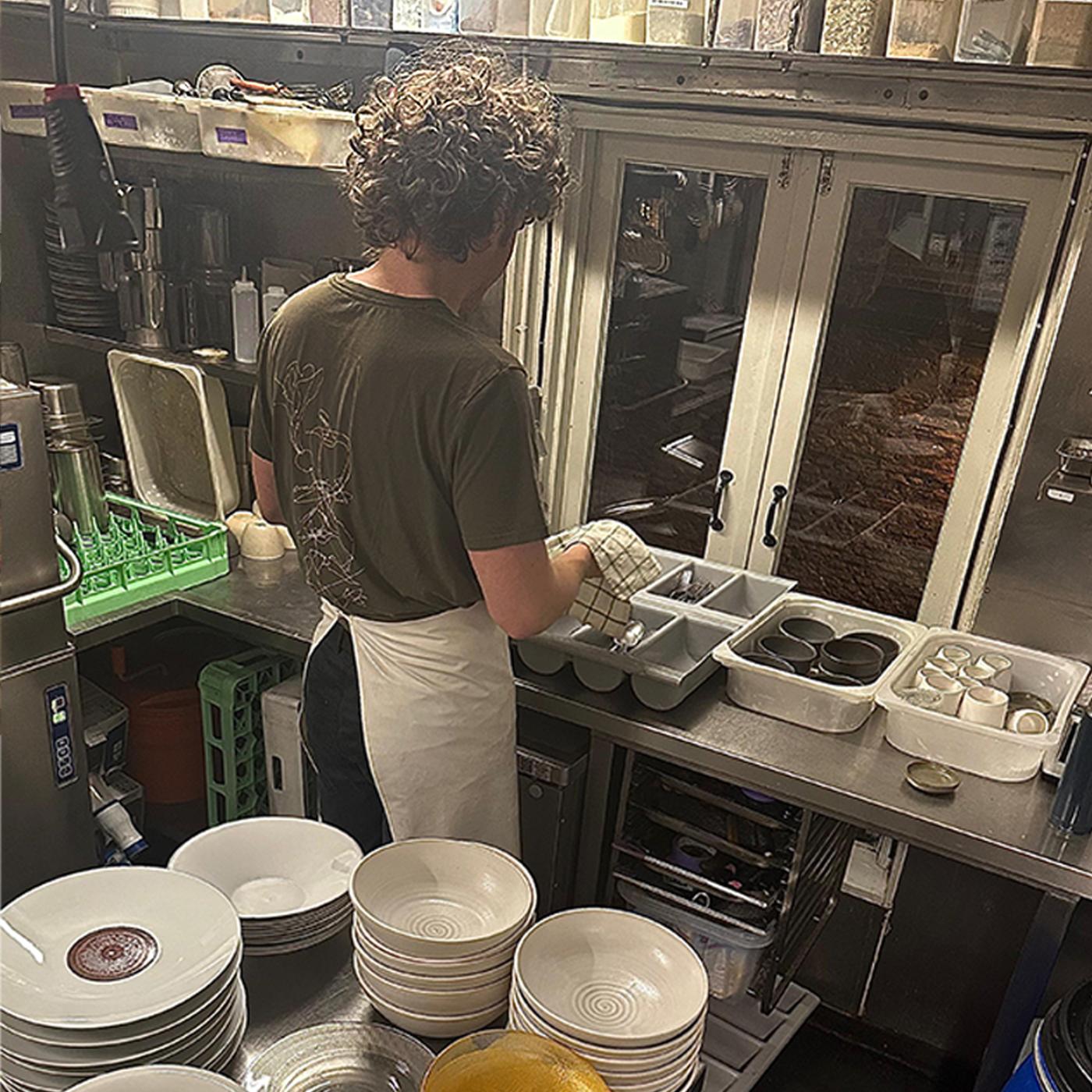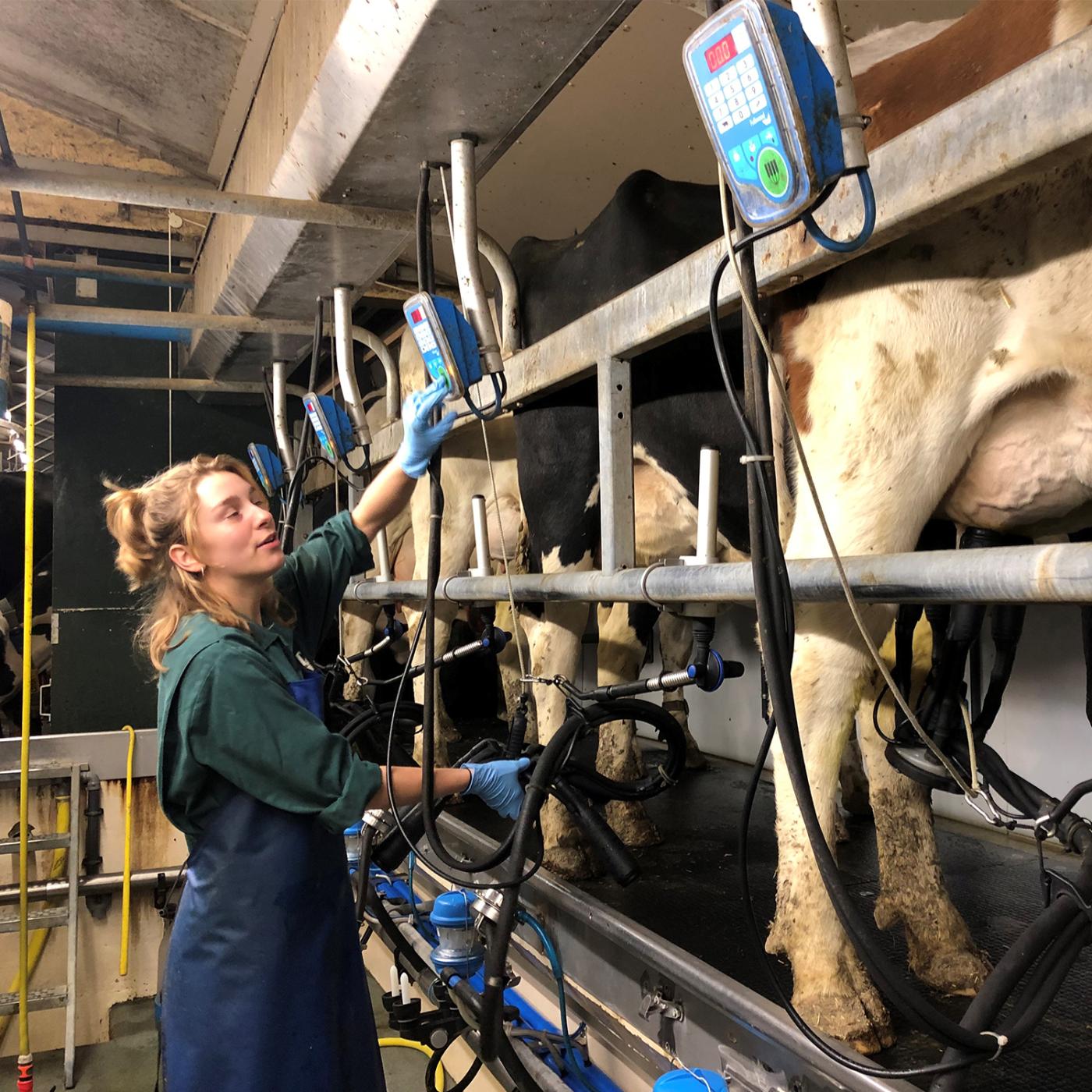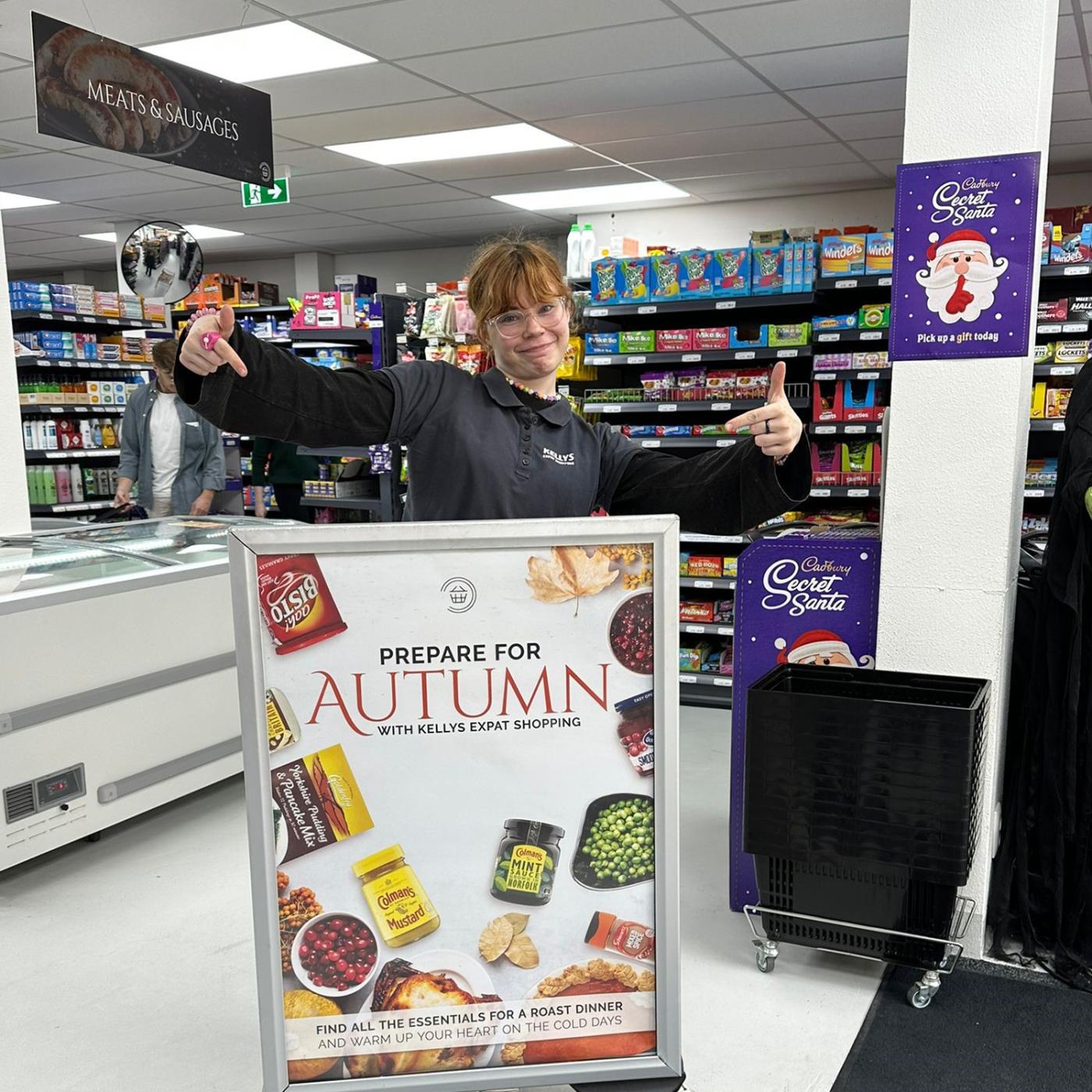Three UU students tell us about their part-time jobs
‘Sometimes a cow gives birth while I'm at work’

“A few years ago, we would receive dozens of CVs whenever we posted a vacancy, but now we only get two or three," says Niels Marchal, Branch Manager at YoungCapital Utrecht, an employment agency for young people. This indicates a labour shortage, which gives students the luxury to choose and make demands, he explains. Sectors that traditionally attract students, such as hospitality and logistics, have become less popular among them. Students now want more flexibility and a higher wage, so they prefer administrative jobs or customer service jobs that allow them to work from home. They are also more interested in day jobs such as trade fairs. Even in these cases, remuneration is a big factor, says Marchal. "It's really hard to find someone for a job that pays less than 15 euros an hour."
DUB spoke with three students who have opted for a permanent part-time job. What are their reasons for doing so?
Julius does the dishes at a restaurant twice a week

'I will never work in the hospitality sector again after this'
Julius (19), a Bachelor's student in Philosophy, washes dishes twice a week at Héron Petit, a Michelin-starred restaurant. "It's quite fancy," he says. "It's not stiff, it's laid-back, but it's not just any restaurant."
This means that the stereotype that washing dishes is a dirty job does not apply here. "People love the food, so the plates are empty when they come to me. This makes a difference." He says he doesn't mind the job. "It's easy to combine this with my classes. Waiting tables would have cost me too much energy, having to talk to all the customers..."
He feels like his job is appreciated at Héron Petit, unlike his previous jobs washing dishes. Hours are flexible and he earns 13 euros an hour. In addition, he gets part of the tips, while his boss doesn't. "Which really goes with this restaurant," he says. "For this reason, I earn much more than I'd expect to as a 19-year-old dishwasher." Last year, his salary was adjusted according to inflation, and he got another raise this month.
The respect is mutual. "I do my best for them because they do their best for me. But I will never work in the hospitality sector again after this, because I think I'll never be treated as well as I am here". He supposes the appreciation he gets for his job might have something to do with the labour shortage. "If the staff is treated badly, people will leave in no time. Just try to find a good dishwasher these days." Julius doesn't depend on this job, either. "I could get by without a job, but I think it's nice to do something else, apart from studying."
He doesn't feel as appreciated by the customers, though. "The restaurant has an open kitchen, so the customers can see me all night. It's a pity when they greet the cooks upon leaving, but they don't greet me. That's why it's so nice that my boss does appreciate what I do."
Because of the open kitchen concept, he has witnessed a lot of stuff. "A while ago, I saw a celebrity at the restaurant. He spent the entire evening talking loudly about his podcast. We had a good laugh about that afterwards."
Bente milks the cows at the Faculty of Veterinary Science

'Sometimes a cow gives birth while I'm at work'
Bente (21) studies Veterinary Science. She milks cows twice a week at De Tolakker, her faculty's educational farm. De Tolakker has about two hundred sheep, 120 pigs, and 70 milk cows that produce organic milk for the brand Campina. The farm's permanent staff are responsible for milking the cows during the day, while students do it in the evening.
It is mandatory for first-year Veterinary Science students to learn how to milk cows and those who enjoy it can do it as a part-time job. "It's not always popular, though. Not many students want to do it on weekends, so it has been hard to find enough people to occupy all the spots. Perhaps that's due to all the choices they have in the labour market now," Bente ponders. "But it is a nice way to get some practical experience about the things we learn in the classroom. The first time I had to do it I had to call my boss, but now I know what I've got to do."
"The ladies," as Bente calls the cows, are milked efficiently. They are split into groups of twelve and taken to the "milking spot", where their nipples are placed inside a milking machine. The cows leave the machine themselves when they are done, and then another group follows. "This one is super sweet," says Bente about the cow that just entered the machine. "She wants to cuddle all the time."
She considers her salary pretty good too: about 16 euros an hour. "We work in three-hour shifts, and I do it a couple of times a week. So, I don't make enough money to support myself." She is happy to do this job, nevertheless. "I'm not good at sitting still. Besides, life is so expensive, just look at the prices at the grocery store. So, these couple of hours do help."
Students are only allowed to work for the university for three consecutive years and Bente's time is almost running out, so she has been looking for a new side job. "I like the hospitality sector and there are enough jobs there." It doesn't matter to her that she will be sacrificing her hourly wage. "I'd be able to work longer shifts there, so I'd be earning more in the end."
Marie works weekends at a supermarket for expats

'I've always worked a lot'
Marie (20) comes from Germany and studies History. She works every weekend at Kelly's Expat Shopping, a supermarket on Nachtegaalstraat offering a range of products that expats can't find at Dutch supermarkets. But, according to Marie, expats are not the only customers there. "There are also many Dutch people who are interested in trying new things or who are curious about the products we offer. But the nicest thing to see is how expats find snacks they miss from their countries of origin."
Her tasks are usual supermarket tasks: operating the cash register, stocking shelves, and organising items. She earns 13 euros an hour. "It's a quiet job, unlike bars and restaurants, where I used to work before."
Her previous work experience in Utrecht was not exactly positive. “I used to work at a restaurant that was part of a large chain. It was chaotic and disorganised. I would be standing at the door, ready to start my shift, while the restaurant should have already been open for an hour.” It didn't take long for her to leave. “For many of my colleagues, including a few international students, that was their first job, so they didn't know that what was going on there was not normal. But I've always worked a lot, so I knew those things were not supposed to be happening.” Marie does not have to work because her family helps her financially. “But I am used to working, and I want to pay as many things as possible myself. I don't want to depend on my parents.”
When she heard that they were looking for someone at the expat store, she didn't hesitate. “It is a lot more pleasant here, compared to my previous job. The hours are very flexible, and it is no problem if I am not able to come to work or if I go on a holiday. My boss and colleagues are very nice as well.”
Marie acknowledges that international students tend to be exploited, but she thinks that depends on the workplace. “Many international students work at bars, restaurants and hotels, a notoriously exploitative industry. It can be hard to find something, especially if you're an international student who does not speak Dutch. I don't mean that they're discriminated against or anything, I understand that you need to be able to speak Dutch to perform certain jobs, and a labour shortage doesn't change that.”